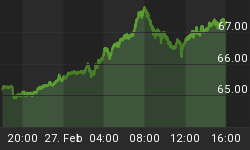Big Brown's failed bid to capture horse racing's Triple Crown reminds us that "there is no sure thing" whether it be in life or in the markets or at the betting window.
Big Brown was the heavy odds on favorite to win the Belmont, and all the bets were on him to come in the money. Yet somehow, he came in last. Once again, going against the consensus has turned out to be the better bet. However, I don't think Big Brown's lost proves that a contrary approach always works, but it is my contention that the heavy betting interest in Big Brown -he went off at a 1 to 4 favorite - actually made the odds on the other horses more attractive. In other words, the other horses were better betting values; they had higher odds than normal because Big Brown was such a heavy favorite to win. Furthermore, with such a poor payoff (i.e., $1 pays 25 cents), there was no reason to even bet on Big Brown. Yet, everybody did, and everybody lost.
The real winners were those who took the chance that just maybe the consensus was wrong.
Back in June, 2004, I wrote an article about contrary investing and Smarty Jones. Smarty Jones was the last horse with a shot at a Triple Crown, and he too disappointed. I quote from the article:
"This past Saturday I was watching Smarty Jones go for the Triple Crown. The pre-race favorite, Smarty was a shoe in to win it all. Never before had so many bet so much on one horse, and when the race was over, never before had so many been so wrong! So much for America's horse!
The conventional wisdom on Smarty Jones was that he could not lose. I know nothing about horse racing (even though I live in thoroughbred country), but the contrarian in me wondered if it was possible that everybody was leaning the wrong way. I wasn't trying to be contrary for contrary sake, but I did realize that maybe the odds on the other horses were higher than they normally would have been since everyone thought that Smarty Jones was a sure winner. Thus I reasoned why bother going to the window to bet on Smarty Jones just to win 20 cents on the dollar when the other horses presented themselves with more attractive odds.
So what does all this have to do with the stock market? For me the similarities were clear. In the stock market as is often the case, we often see that when the crowd is extreme in its belief, the crowd is wrong. This is the time to be contrarian. The question for racing fans and for stock speculators is: how do you know when the crowd will be wrong?
I don't think you ever really know and we can safely say, 'there is no such thing as a sure thing.' But, I think you can identify emotional extremes when the 'majority' of stock market participants are leaning the wrong way. That is, you can quantify when it might be best to be contrary to the prevailing whims of the herd."
Once again, life and the markets are very similar. In both endeavors, taking the path less traveled is often the most rewarding path. Remember, the consensus is the market, and to beat the market, you can not be the consensus.
Market Bias
I have been saying the following for about 6 weeks now:
The Market Bias Timing System (which is the model that I have developed to keep me ahead of the trend) remains neutral but it is a more bearish neutral. The S&P500 portion of this timing system has rolled over and the NASDAQ should follow soon. The price cycle seems fated to head lower over the next couple of weeks as upward momentum completely evaporates from the markets. When this occurs, the Market Bias Timing System will be in full bearish territory, and this would be consistent with a market prone to significant losses. I should note that the Market Bias Timing System is not a model that "calls" a bull or bear market. It is a trading system. We have been in a bear market since December, 2007, and the bounce from the March lows appears to have been a countertrend rally within a bearish trend. Any bounce should be an opportunity to pare down positions and raise cash. Short selling opportunities may present themselves.
To learn more about our quantitative and disciplined investment approach please visit www.thetechnicaltake.com and sign up for our free weekly newsletter and downloads.
Guy M. Lerner may be reached at guy@thetechnicaltake.com.















